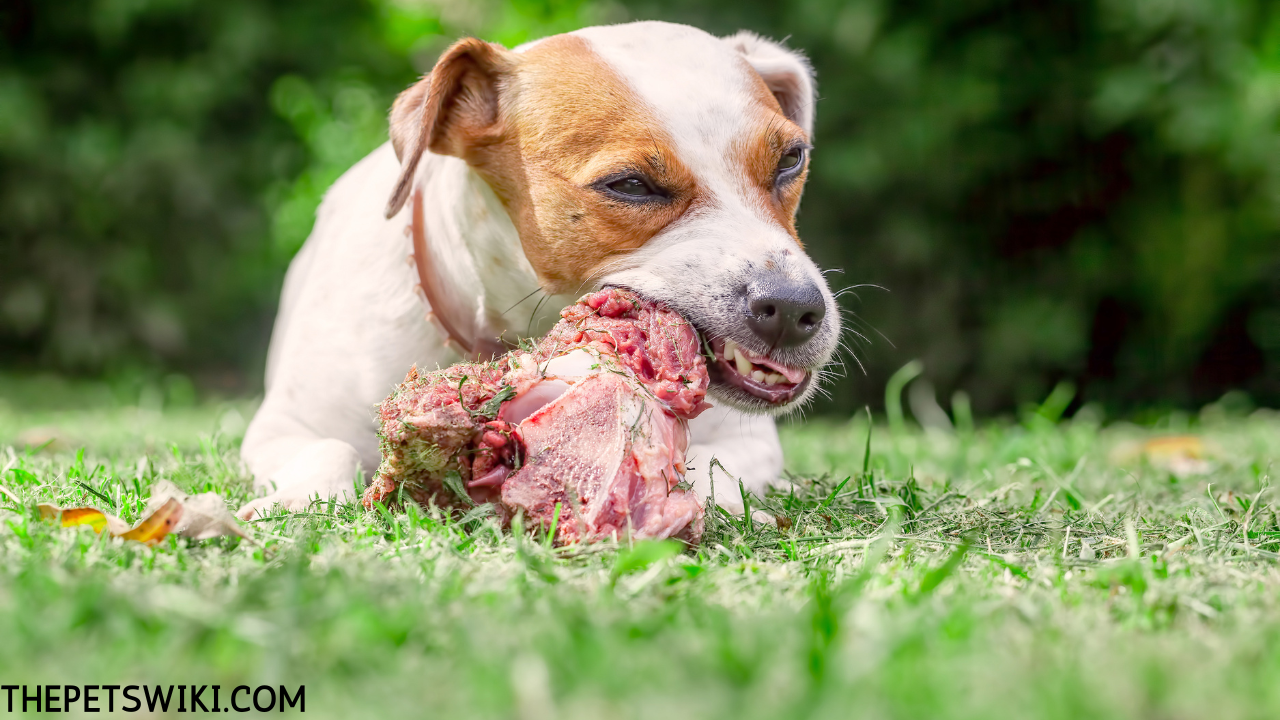Many pet owners may wonder about the safety of feeding potted meat to their furry companions, especially considering its convenience and extended shelf life. Let us find the answer can dogs eat potted meat?
While potted meat itself is not classified as toxic to dogs, it is generally advised against due to its less-than-ideal nutritional profile.
The elevated levels of fat, salt, and various additives present in potted meat can contribute to gastrointestinal disturbances and other health issues in our pets. Additionally, certain potted meat formulations may incorporate spices or components that pose potential risks to dogs.

What Is Potted Meat?
Potted meat refers to a type of processed and preserved meat product that is typically stored in small, sealed containers. It is created by cooking and seasoning meat, often beef or pork, and then blending or grinding it into a smooth paste or spreadable consistency. The mixture is then placed in a container, usually a small tin or jar, and sealed to maintain freshness.
Potted meat is known for its convenience and long shelf life, making it a portable and accessible food option. It is often spread on crackers, bread, or used as a sandwich filling. While potted meat can vary in composition and flavor, it commonly contains high amounts of fat and salt to enhance taste and preservation
Can Dogs Eat Potted Meat?
Feeding dogs potted meat is not recommended as a regular part of their diet. While potted meat itself may not be inherently toxic to dogs, it often contains high levels of salt, fat, and other additives that can be detrimental to their health.
The excessive salt content in potted meat can lead to issues like increased thirst, urination, and, in severe cases, sodium ion poisoning. Additionally, the high fat content may contribute to digestive upset, pancreatitis, and obesity in dogs. Do also check out the related blog Can Dogs Have Taco Meat?
5 Reasons You Should Not Give Potted Meat To Your Dog
Providing potted meat to your dog is discouraged for several reasons, emphasizing the importance of making informed and responsible dietary choices for your canine companion.
Unhealthy Composition
Potted meat often contains elevated levels of salt, fat, and additives, which can lead to adverse health effects in dogs. The excessive salt content may result in sodium ion poisoning, while the high-fat content can contribute to digestive issues and obesity.
Potential Harmful Ingredients
Some potted meat formulations may include spices or other ingredients that can be potentially harmful to dogs. It’s crucial to be aware of the specific components in potted meat to avoid exposing your dog to substances that could be detrimental to their health.
Digestive Upset
The rich and processed nature of potted meat can lead to digestive upset in dogs. Issues such as vomiting, diarrhea, or pancreatitis may arise, causing discomfort and potential long-term health complications.
Lack of Essential Nutrients
Potted meat may lack the essential nutrients that dogs require for optimal health. A well-balanced and nutritious diet is crucial for maintaining their overall well-being, and potted meat may not provide the necessary elements for a dog’s specific dietary needs.
Better Alternatives Available
There are numerous dog-friendly treats and foods available that offer both palatability and nutritional value without the potential risks associated with potted meat. Opting for these alternatives ensures that your dog receives safe and appropriate nourishment.
My Dog Ate Potted Meat. What Should I Do?
If your dog has eaten potted meat, it’s essential to monitor them closely for any signs of distress or adverse reactions. Potted meat, while not toxic to dogs in small amounts, is high in salt and fat, which can lead to digestive upset, including vomiting, diarrhea, and pancreatitis.
Monitor Symptoms
Keep an eye on your dog for any signs of discomfort, vomiting, diarrhea, lethargy, or unusual behavior.
Contact Your Veterinarian
If you notice any concerning symptoms or if your dog has ingested a large amount of potted meat, contact your veterinarian immediately for guidance. They can assess the situation and provide recommendations based on your dog’s health and the amount ingested.
Follow Veterinarian’s Advice
Your veterinarian may recommend monitoring your dog at home or bringing them in for evaluation and treatment depending on the severity of the situation.
What 3 Meats Should Dogs Avoid?
Processed Meats
Processed meats like bacon, hot dogs, and sausage are high in fat, sodium, and preservatives, which can be harmful to dogs and may contribute to obesity, pancreatitis, and other health issues.
Fatty Meats
Fatty meats such as lamb, pork, and beef trimmings can lead to digestive upset, pancreatitis, and obesity in dogs. The high-fat content can be difficult for dogs to digest and may cause gastrointestinal distress.
Suggested Reading: Can Dogs Eat Freezer Burned Meat? A Comprehensive Guide
Raw Meats
Raw meats, including raw chicken, beef, and fish, can contain harmful bacteria such as Salmonella and E. coli, which can cause food poisoning and gastrointestinal infections in dogs. Additionally, raw meat may contain parasites that can be harmful to your pet’s health.
Best Alternatives
- High-Quality Animal Protein: Opt for lean cuts of meat such as chicken, turkey, beef, and fish.
- Fresh Fruits and Vegetables: Incorporate a variety of fresh fruits and vegetables into your dog’s diet, such as carrots, sweet potatoes, green beans, and apples.
- Whole Grains: Include whole grains like brown rice, quinoa, and barley in your dog’s diet to provide carbohydrates for energy and fiber for digestive health.
- Homemade Meals: Consider preparing homemade meals for your dog using vet-approved recipes. This allows you to control the ingredients and ensure your dog receives a balanced and nutritious diet.
Is Plant-Based Meat OK for Dogs?
Plant-based meat for dogs is a type of dog food made from plant-derived ingredients that mimic the taste and texture of traditional meat. Unlike conventional meat-based dog foods, plant-based meat products are crafted using ingredients like soy, peas, lentils, and grains to provide a protein-rich option for dogs that aligns with vegetarian or vegan dietary preferences.
Conclusion
In conclusion, when considering plant-based meat for dogs, it’s crucial to prioritize moderation, nutritional balance, and consultation with a veterinarian. While plant-based meat can offer a cruelty-free and sustainable option for pet owners with specific dietary preferences, it should complement rather than replace a balanced diet rich in high-quality animal proteins, fresh fruits and vegetables, whole grains, and natural treats. Moderation ensures that dogs receive essential nutrients while minimizing the risk of digestive upset and caloric imbalance. Consulting with a veterinarian helps tailor dietary choices to meet individual nutritional needs and ensures optimal health and well-being for dogs. By carefully considering these factors, pet owners can make informed decisions about incorporating plant-based meat into their dog’s diet while maintaining a balanced and nutritious meal plan overall.


